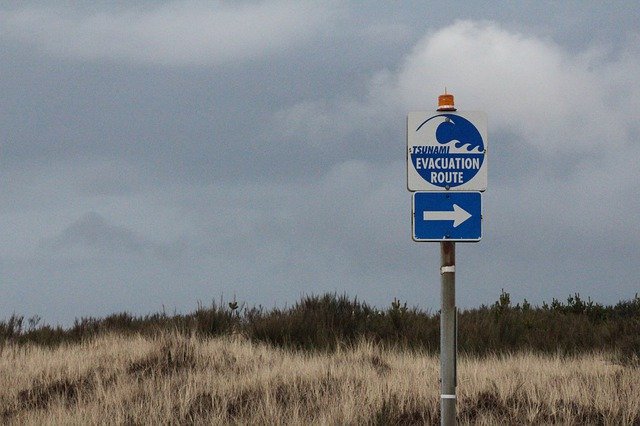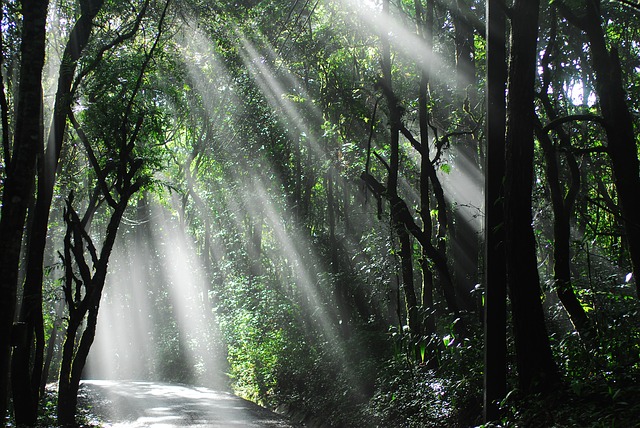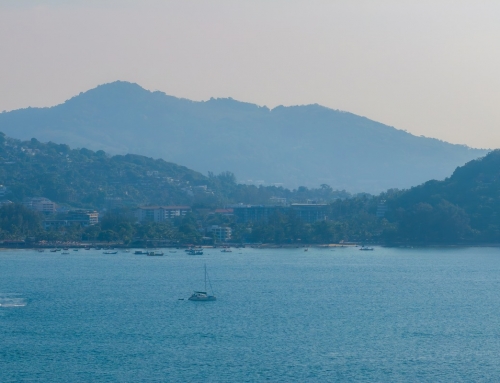If you are thinking about investing in some land and building a home, hotel or a condominium project in Phuket, then you really should familiarise yourself with the applicable zoning laws.
Buying a plot of land with stunning views may seem like a great idea, but if you don’t do your homework and learn the potential pitfalls, your land investment may well turn into a giant headache.
What is the worst case scenario? Well, it’s pretty bad. If you proceed with your purchase before conducting the necessary due diligence, you may find out that sale was actually illegal, making your land basically worthless. Phuket is dotted with old buildings in a noticeable state of disrepair which were built illegally and can never be sold. There are even some prime beachside villas and hotels that fall into this category.
What Do You Need To Watch Out For?
If you are buying land and intend to build on it, it is imperative that you engage an experienced lawyer and pay for due diligence – even before you place a deposit.
If you go ahead with your purchase without doing the necessary checks, you might find out that you’re not allowed to build your dream property after all. There are a few things that you need to watch out for, and this is why it is essential to have a lawyer on your side when buying land.
What are Zoning Laws?
Most countries have zoning laws, which specify what commercial or residential construction is permitted in specific areas, and details the allowable uses and restrictions for building in each area. In addition to designating (or prohibiting) certain uses, any zones where building may occur will be subject to regulations on the types of building, the number of storeys allowed, and/or the height limitations on the final construction.
Within Thailand’s Ministry of Interior, there are a number of government departments that may be involved in reviewing or changing zoning laws. These include, but are not limited to:
Department of Public Works and Town & Country Planning
Office of Natural Resources and Environmental Policy and Planning
Ministry of Science, Technology and Environment
Ministry of Natural Resources and Environment
Height Restrictions on Buildings
Zoning in Phuket is relatively easy to understand. Being an island, it probably makes sense that most of the restrictions are based on the distance you can build from this shoreline.
Although you may see these laws being flouted, a reputable lawyer will always advise against ignoring these laws. Because there is no statute of limitations on seizing land purchased illegally, you can lose your property and see your home demolished if you fail to play by the rules.
When it comes to how close to the beach you may build, the generally accepted measurement is from the high water mark. But this can be subjective and is one reason why some parties unknowingly wind up building where they shouldn’t have.
Here are the some of rules pertaining to building on land near the beach:
- Within 50 meters of the high tide mark inland you may build to a maximum height of 6 metres
- Between 50 meters and 200 metres inland to a maximum height of 12 metres
- Between 200 metres and 400 metres inland to a maximum height of 16 metres
- The total maximum height in allowable areas is 23 metres
We borrowed the following diagram from the Phuket Land Busters website:
Is Your Land Above 80 Metres?
This mistake is still made by people on Phuket, including some owners of multi-million USD homes.
The law states that no building may be built to a height exceeding 80 metres. This applies to top of the building, not the ground level of your property, and it is measured from sea level.
In other words, if you have a beautiful parcel of land atop a 70-meter hillside in Phuket, the house or villa or condo can be built no taller than 10 metres (32.8 feet).
If the elevation of your land does not allow ample room to build, it could be difficult to sell the land to a new buyer, especially if they decide to run due diligence on the property before closing the deal.

Are You Too Close To The Beach?
Phuket has seen a number of cases whereby villas or town homes were built almost right the beach, in some cases with the approval of local government offices. Despite this “approval” the development may nevertheless be illegal.
If an “interested party” – which could be a neighbour or a visiting official from Bangkok – complains about the potential illegality of the project, the dispute then ends up in a courtroom. If it is determined the land is too close to the sea, this can lead to a demolition order for the property.
If you are going to buy beachfront land, make sure you follow not only the rules, but an accurate land survey, otherwise your dream house might turn into a nightmare.
Check Your Slope – New Rules Governing Hillside Land Gradients
Another thing to look out for is the gradient of the land. In 2018 the laws were changed and land owners were no longer allowed to construct on some of Phuket’s steeper gradients.
Prime real estate usually comes with a view, the elevated hillside vistas are generally considered to be the best. But developers and home builders must be now careful that the plot of land they are buying adheres to the 2018 ruling on gradients.
The Ministry of Natural Resources and Environment now specifies that properties may not be built on a gradient of 35 degrees or more.
In addition to the slope restriction, there are now more stringent rules governing elevation. Any buildings constructed at an elevation of 40 metres above sea level (or more) may no longer be built to a height of more than 6 metres.
While this is unlikely to affect anyone contemplating a mountain side villa, it could have larger ramifications on condominium or hotel developments aiming to capture panoramic views.
Smaller developments should be able to cope with these changes, as any development with 29 units or fewer will be excused from Environmental Assessment procedures. Larger projects, however, will have a whole host of new requirements to satisfy the authorities.
How Wide Is Your Outside Road?
Thailand has laws governing how high a building may be – and how far from the road it must sit – and both depend on how wide the road in question is.
For example, if the road is less than 6 metres wide, the building must be a certain distance from the road. And the building itself may also be subject to height restrictions. In other words, the distance from the road and maximum allowable building height will change with the width of the outside road.
In the past, neighbours who have complained about buildings that have violated one or both of these statutes have been succesful in their argument. In such cases the building has been ordered by the courts to be demolished. But if the violation is minor, it is always possible to reduce the height of the building to appease all the complaining neighbours.
But suffice it say, flouting this law is not a risk you want to take.

Is Your Land on National Forest or Forestry Reserve?
As mentioned above, we always advise anyone buying land to carry out due diligence. But this goes double for those buying a villa in a forested area.
There have been many cases in Phuket (and elsewhere in Thailand), where large parcels of land on mountainsides, some of it on capes close to beaches, were illegally sold to private buyers. This land was never actually available for sale, and was actually the property of The Department of National Parks, Wildlife and Plant Conservation, which is a sub agency of the better known Ministry of Natural Resources and Environment.
While much less common today, this practice certainly still happens, and there are still villas and condominiums being constructed on what we call “dirty land”. Even if the villa, condo, or hotel has been around for years it does not mean that violators have gotten away from skirting the law. The land belongs to the government, and by extension to the Thai people, and it can be reclaimed at any time in the future.
There is no statute of limitations, and even though you may have been lied to and duped into buying the land, there is unlikely to ever be any compensation due. If the land in questions turns out to be national forest, forest reserve, or otherwise public land, you could lose everything and have no legal recourse.
This is where the truly experienced lawyers really earn their fees because in some cases it is only when they conduct absolutely thorough due diligence that they can expose the any potential problems.





Social Contact